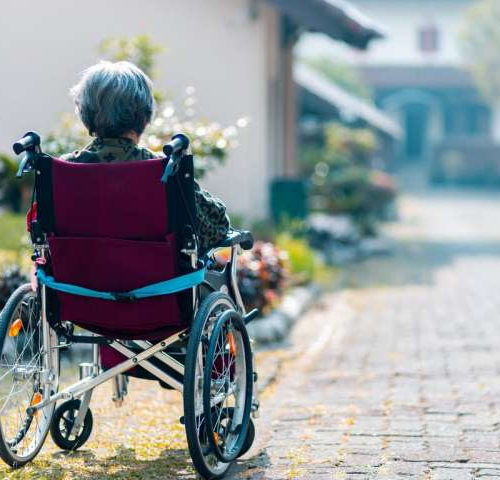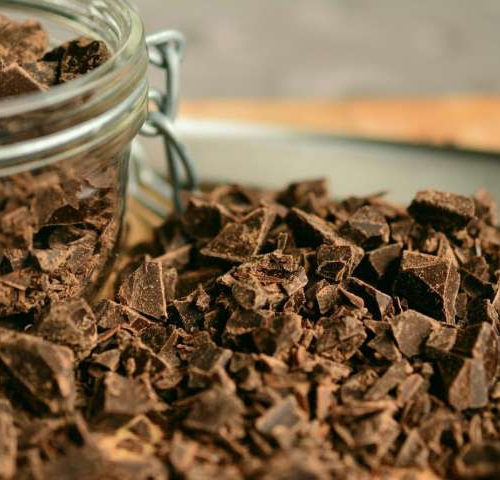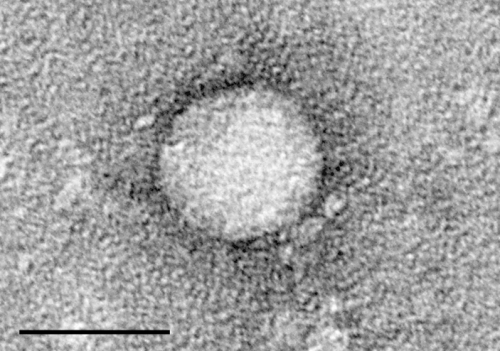by Macquarie University Researchers from Macquarie University have discovered a world-first new treatment that reverses the effects of memory loss associated with Alzheimer’s disease in a study of mice with advanced dementia. The research, co-led by two brothers, Dr. Arne Ittner and Professor Lars Ittner, from Macquarie University Dementia Research Center, builds on their work...
Tag: <span>diseases</span>
Chocolate is good for the heart
by European Society of Cardiology Eating chocolate at least once a week is linked with a reduced risk of heart disease, according to research published today in the European Journal of Preventive Cardiology, a journal of the European Society of Cardiology (ESC).1 “Our study suggests that chocolate helps keep the heart’s blood vessels healthy,” said...
Lung ultrasound shows duration, severity of coronavirus disease (COVID-19)
Thickened pleural line more frequently observed in patients with longer time intervals after symptom onset; pulmonary consolidation more common in severe and critical cases AMERICAN ROENTGEN RAY SOCIETY A AND B, LUNG ULTRASOUND IMAGES OBTAINED WITH CONVEX (A) AND LINEAR (B) PROBES. MULTIPLE CONFLUENT B-LINES (ARROWS), PATCHY PULMONARY CONSOLIDATION (ASTERISK, B), AND THICKENED PLEURAL LINE...
New study identifies 21 existing drugs that could treat COVID-19
by Sanford Burnham Prebys Medical Discovery Institute Discovery Institute, gestures to experimental assays that test for compounds that may treat COVID-19. Credit: Sanford Burnham Prebys Medical Discovery Institute A Nature study authored by a global team of scientists and led by Sumit Chanda, Ph.D., professor at Sanford Burnham Prebys Medical Discovery Institute, has identified 21...
Mouse study shows spinal cord injury causes bone marrow failure syndrome
OHIO STATE UNIVERSITY WEXNER MEDICAL CENTER LEAD AUTHOR PHILLIP POPOVIC IS, CHAIR OF THE OHIO STATE DEPARTMENT OF NEUROSCIENCE AND EXECUTIVE DIRECTOR OF OHIO STATE’S BELFORD CENTER FOR SPINAL CORD INJURY AND CENTER FOR BRAIN… view more CREDIT: THE OHIO STATE UNIVERSITY WEXNER MEDICAL CENTER COLUMBUS, Ohio – Research conducted at The Ohio State University...
COVID-19 NEW Remedy: 79% Virus Severity Reduced, Thanks to Protein Inhalation
How inhaling protein reduces COVID-19 death? A United Kingdom company called Synairgen recently discovered a new COVID-19 treatment that could reduce a COVID-19 patient’s chances of death up to 79%, BBC reported. More than 100 people in London done trial testing on the drug called SNG001. This drug is made out of a protein called...
New method developed for non-invasive risk assessment following hepatitis C recovery
by Johannes Angerer, Medical University of Vienna The chronic viral inflammation of the liver that occurs in hepatitis C results in the formation of inflexible scar tissue in the form of fibrosis/cirrhosis of the liver. This impedes the flow of blood through the organ, with resulting hypertension in the portal vein. In the majority of...
Skin cancer treatments could be used to treat other forms of the disease
by Institut national de la recherche scientifique – INRS The creation of a silica nanocapsule could allow treatments that use light to destroy cancerous or precancerous cells in the skin to also be used to treat other types of cancer. Such are the findings of a study by INRS (Institut national de la recherche scientifique)...
Study shows genetic markers are useful in predicting osteoporotic fracture risk
Findings hold potential for cost savings while improving efficiency of screening HEBREW SENIORLIFE HINDA AND ARTHUR MARCUS INSTITUTE FOR AGING RESEARCH A new study shows that genetic pre-screening could reduce the number of screening tests needed to identify individuals at risk for osteoporotic fractures. Douglas P. Kiel, M.D., M.P.H.,director of the Musculoskeletal Research Center in...
Apathy not depression helps to predict dementia
Apathy offers an important early warning sign of dementia in individuals with cerebrovascular disease, but depression does not, new research led by the University of Cambridge suggests. Depression is often thought to be a risk factor for dementia but this may be because some depression scales used by clinicians and researchers partially assess apathy, say...








